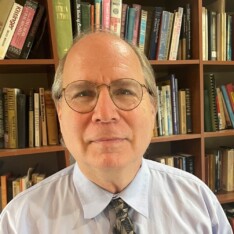Reaching Across the Aisle for the Bill of Rights: Learning from a Political Odd Couple

The inability, or unwillingness, to bridge the ideological divide is a hallmark of American politics. The failure is especially acute on issues centering on the Bill of Rights. We all know the drill. Americans on the left and right will object to attacks on free speech, but pretty much only when people like them are their victims. This selectivity creates a classic free rider problem which weakens the overall level of protection for that right. An obvious solution is to build more, and broader pro-free speech coalitions. In doing so, a necessary first step will be to better understand how such efforts have worked in the past. One of the most instructive resulted from a tag team partnership between Republican Alfred Landon and Socialist Norman Thomas, the two main opposition candidates to Franklin D. Roosevelt in 1936.
Two near-simultaneous attacks on free speech brought this unlikely pair together. The first was a bill proposed on April 28, 1938 by Senator Sherman Minton (D. Ind) to criminalize the publication of any article “known to be false.” Minton, a key FDR ally, took the opportunity to blast the “false propaganda” of the “Tory” newspapers which had opposed the President. His list of offenders included such anti–New Deal voices as the Philadelphia Inquirer and the Chicago Daily Tribune. Many credible observers charged that Roosevelt had secretly egged on Minton to propose the bill.
These same observers noted that the President’s overall critique of the mainstream press was nearly identical with that of Minton. In 1938, for example, FDR had proclaimed that “our newspapers cannot be edited in the interests of the general public, from the counting room.” He mused on the possibility of “a national symposium on that question, particularly in relation to the freedom of the press. How many bogies are conjured up by invoking that greatly overworked phrase.”
Just as Minton was maneuvering to restrict First Amendment rights in one realm, Mayor Frank Hague of Jersey City was doing the same in another. Hague was trying to drive out organizers from the Congress of Industrial Organizations (CIO), which he regarded as a disrupter of business conditions in the city. He passed down the word to deny meeting permits to the CIO and allied groups, selectively enforce building codes, use intimidation to close off private meeting halls, and muzzle the dissident press.
Roosevelt had no political incentive to alienate either Minton or Hague. Minton was an essential point man in the Senate in advancing the New Deal agenda. Roosevelt valued his services so much that in 1937 he had offered the Senator a spot on the Supreme Court, but Minton wanted to stay in the Senate. Just as important was Hague’s contribution to Roosevelt’s success as a reliable generator of votes from a crucial swing state. The electoral interests between Hague and FDR’s New Deal apparatus were so close that a local director of the Works Progress Administration (WPA) fell into the habit of answering the phone: “Democratic Headquarters.” The stench of corruption was palpable, but Roosevelt chose to ignore it. When the Postmaster General urged legal action after he found that Hague’s henchman was reading the mail of a rival, Roosevelt responded: “Forget prosecution. You go tell Frank to knock it off…But keep this quiet. We need Hague’s support and we want New Jersey.”
The Hague free speech controversy came to a head just two days after Minton announced his bill, when the perennial Socialist Party presidential candidate, Norman Thomas, showed up in Jersey City to speak at an open-air rally. This led to his immediate arrest, giving Thomas barely enough time to say “So this is Jersey justice” before he was whisked away.
That might have been the end of it had not Alfred Landon responded by firing off a letter of support to his 1936 Socialist opponent, promising to stand “shoulder to shoulder with you in this fight for free speech.” Landon depicted FDR, Hague, and Minton as closely aligned threats, each revealing “a New Deal attitude toward the press” that “may reflect the President’s attitude.”
Spurred on by the Thomas/Landon alliance, more Democrats and Republicans began to cross the ideological aisle in the cause of free speech. One prominent New Dealer, for example, called Minton’s proposal the “most asinine bill introduced in the present Congress.” At the same time, even conservatives who might have otherwise shared Hague’s animus to the CIO became more sensitive to the dangers of free speech suppression in Jersey City. They also began to show greater appreciation for Thomas’s principled civil libertarianism, opposition to communism, and independence from Roosevelt.
The President very much wanted to sidestep these widening controversies, but the pressures were bearing down. Asked directly for comment just as an adverse reaction was setting in against Minton’s bill, FDR punted. He jokingly suggested referring the proposal to the Federal Bureau of Prisons, but added that it would not have sufficient funds to accommodate all the convicts that might be punished under such a law. Before moving to the next question, and getting a good laugh, he quipped to the reporters, “You boys asked for it, you know.” In the days to come, however, the President carefully avoided any comment on Minton’s proposal.
As to Hague’s abuses, Roosevelt gradually made gestures to still criticism on his left flank. The pragmatic Hague ultimately made that job easier by cutting a deal with the CIO. Long before this, Minton had withdrawn his bill because of a lack of support. In the essentials, however, Roosevelt remained a fast friend to both Minton, who he eventually appointed to a federal judgeship, and Hague who, with the President’s protection, stayed firmly in place as vice chair of the National Democratic Committee.
The example set by Thomas and Landon proved infectious. Most notably, it spurred cooperation between the American Civil Liberties Union and the new Special Committee on the Bill of Rights of the conservative American Bar Association. The success of the Thomas/Landon alliance provides a timely lesson. If Americans want to expand and guarantee protections for free speech, they can gain inspiration from the contributions made by that political odd couple.










